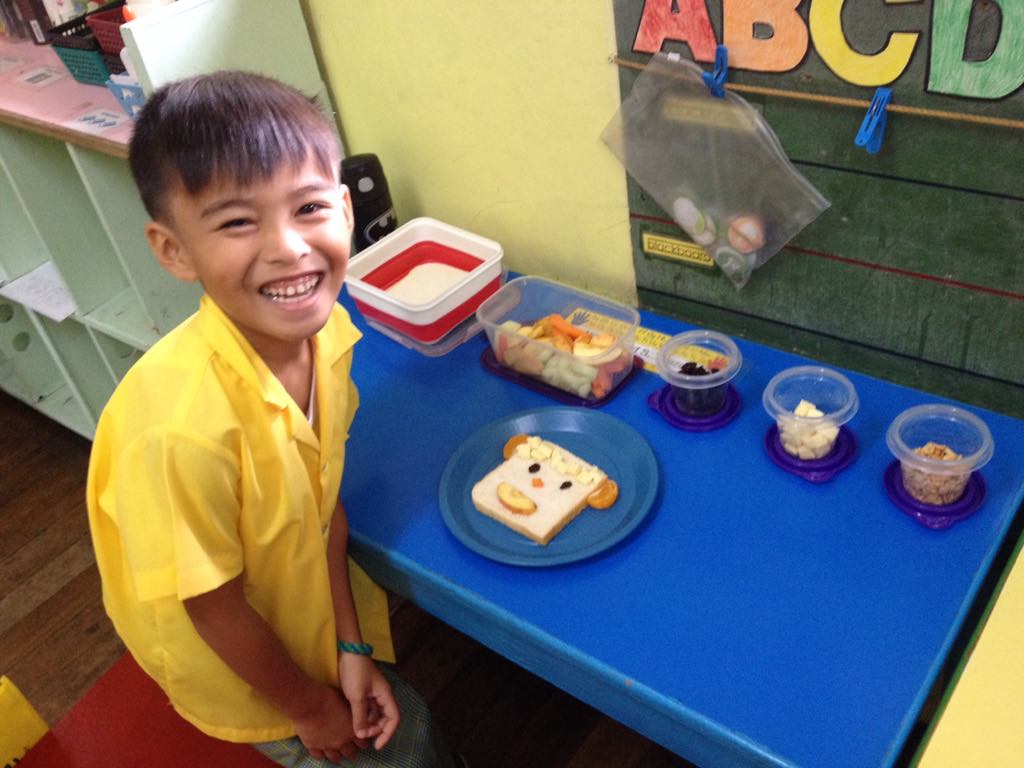If your preschooler is a picky eater, you’re not alone. Picky eating is a common and totally normal behavior among preschoolers. But when should parents worry about their child’seating behaviors? What can they do to make sure that their preschooler is getting the nutrition he/she needs? Read on to learn more about how to deal with picky eaters here.
How to deal with picky eaters: 10 Tips for parents
1. Manage your expectations
Some preschoolers may not be eating as much as their parents would like them to, but perhaps these parents also have to keep their unrealistic expectations in check. According to a recent study, around 25 to 35 percent of toddlers and preschoolers are described by their parents as “picky” eaters, but experts say that most of these children have age-appropriate appetites. Toddlers typically have smaller appetites than they had when they were infants, as they’re not growing as rapidly as they used to.
“Parents should manage their expectations when it comes to their child’s appetite and openness to new food,” says Teacher Alyssa, Goodstart Preschool‘s Kindergarten Lead Teacher, who recommends that parents consult a pediatrician if they’re concerned about their child’s diet.

How to deal with picky eaters: Understand your child’s appetite (Photo by sklei from Pexels)
2. Model good eating habits
If you don’t like eating your greens, don’t expect your child to eat their vegetables when you ask. Kids are more likely to try new food if they see other people (e.g. their parents and older siblings) enjoying them. Also, make it a point to make family meals pleasant, keeping the conversation light and fun so your child associates mealtimes with positive emotions.
“It may not seem like it sometimes, but a child is quite observant,” says Teacher Cai, Goodstart Preschool’s Nursery Lead Teacher. “They notice the little things like their parents’ reactions and opinions about everyday things (especially food) and try to mimic them. Show them that you yourself are eating the kinds of food that you want them to eat. As with any kid, he/she will learn it best from his/her parents.”
3. Introduce new food slowly
Young kids like what they like, and can eat the same thing over and over again for days. It’s normal for parents to be concerned about getting their children to consume a balanced diet, but introducing new food can be quite a challenge. Don’t force your child to try new things, but gently encourage to branch out by offering new food gradually, one new food at a time. This not only prevents your child from getting overwhelmed, and also makes it easier for you to be aware of any food allergies.
“When introducing new food to your child, it is better to ease into it,” says Teacher Cai. “Have them try new food at least once. They may not like it right away, but with continuous exposure, they will grow to like it eventually. Keep in mind that eating is not a chore and should not be forced. It is something to be enjoyed.”
4. Set a routine

How to deal with picky eaters: Stick to a schedule (Photo by kazuend on Unsplash)
Try to stick to a set schedule when serving meals and snacks. Having a routine will help develop feelings of security around food, preventing behaviors like overeating or inadequate eating. It’s best to give young kids with small meals throughout the day.
If your child refuses to eat a full meal, you may have better luck during snack time. If you have trouble figuring out how to get your toddler or young child to sit at the table, minimize distractions by turning off the TV and other gadgets. This helps your child focus on the meal and avoid being tempted by junk food ads.
5. Be firm…
Parents shouldn’t be bending over backward to get their kids to eat during mealtimes. This means not preparing special meals for your child if he or she rejects what you serve. Doing so isn’t just tiring for parents, but also reinforces picky eating behavior. Even if your child refuses to eat, encourage your child to stay at the table during mealtimes.
“I think parents should be firm and not always give in to what their child wants to eat (even if he/she starts throwing a tantrum or threatens not to eat at all!),” says Teacher Alyssa. “Children should be encouraged to eat whatever is being served on the table.”
6. …But don’t force it
When parents are overly concerned about how to deal with picky eaters, they can go overboard by punishing their child or pressuring them if they don’t eat. While this may work in the short run, this can lead them to dislike food they otherwise may have learned to like over time. Forcing them to “clean their plates” can also lead to unhealthy eating habits, such as eating when they’re not hungry, or develop negative attitudes towards healthy food.
Similarly, it’s not a good idea to bribe your child with unhealthy food (like ice cream or cookies) to eat healthy food (like vegetables). Children are taught that they’re supposed to enjoy healthy food and avoid junk food, and treating the latter as a reward sends a different message.
7. Snack in moderation

Photo by Naomi Shi from Unsplash
While regular snack times are a good way to make sure that your child gets some nutrition during the day, it’s important that parents limit snacks to ensure that he or she is hungry during mealtimes. Filling up on snacks, milk, or juice during the day could decrease your child’s appetite. And watch what you feed your child during snack times since some snacks have a more filling effect than others, and lots of food marketed towards kids aren’t exactly healthy. Moderation is key.
“Most parents would agree that constantly giving their child processed food that is rich in sugar and salt may rob them of the nutrients they need for healthy growth and development,” says Teacher Alyssa. “However, it is also unrealistic to deprive them of those savory snacks and sweet treats. They can eat ‘unhealthy’ snacks in moderation.”
8. Ask your child to help
Let your child have some say in their meals by letting them be more hands-on when it comes to their food. Bring them to the grocery and ask your child to help you choose healthy food. Ask your child to help you prepare meals by letting them do simple tasks like rinsing veggies or setting the table.
“Take the next step by scouring the internet for easy and healthy recipes that you can cook or prepare with them,” says Teacher Cai. “Keeping them involved will develop their interest and make them see (and taste) for themselves that healthy food is yummy food.”
9. Make food fun

How to deal with picky eaters: Make mealtimes fun! (Photo by Goodstart Preschool)
You can also make meals more appealing by making the meal itself fun. Teacher Alyssa’s Kindergarten class has a Food Art activity, where they create silly faces with pieces of fruit, nuts, cereals, and bread. Afterward, they would take a bite out of their creation.
“Reading books on healthy eating with your child (e.g. “The Hungry Caterpillar” by Eric Carle and “Filemon Mamon” by Christine Bellen) is also a good way to reinforce a healthy lifestyle at home,” adds Teacher Alyssa.
10. Quit comparing
Parents shouldn’t get sucked into the comparison trap, whether it concerns your child’s progress in school or his/her eating habits. Some kids have bigger appetites than others, but just because your child isn’t eating as much as other kids doesn’t necessarily mean that there’s anything wrong with him/her. And if your child is smaller or larger than other kids, that size disparity could be caused by a wide range of things.
“Different children have different physiological characteristics,” says Teacher Cai. “Their appearance is dictated by many factors, like genes, hormones, metabolism, etc. What’s important is that they have a balanced diet and can be active and energetic when needed. If you are still in doubt of your child’s physical well-being, it is always best to consult with your pediatrician.”
Got any other tips on how to deal with picky eaters? Share them in the comments below!
(Featured photo by Goodstart Preschool)

